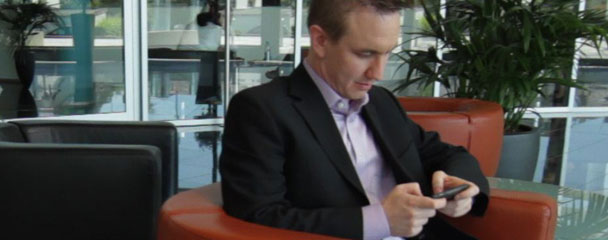Too often in company offices workers become wasters, more
engaged towards scoring high in candy-crush than achieving the best at their
work in hand.1 So what is the issue? We as humans struggle to live in the present.
We would often rather procrastinate, reminisce about the past or dream about
the future than spend time in the present and take time to grab hold of all
that each moment can offer us.
Of course that is not to say that work never gets boring
and that the odd distraction is not healthy. But the main issue here - and one
that Acceptance & Commitment Therapy (ACT) seeks to address – is that
living in the present is healthy. And
in the context of the workplace a move towards more ‘in the present living’
would see mutual benefits for both employees – who become less susceptible to
irrational thinking - and the employers who reap the gains of higher engagement
and efficiency.
So for me personally, when I look at ACT and all it has to offer1; a greater focus on mindfulness and ‘present living’ should be honed in on. My interpretation of that concept would be to ban all personal mobile phone usage between working hours in offices. Extreme as that may sound, similar radical measures can already be seen at big corporates,2 with global IT company ATOS banishing all email communications across the business with direct face-to-face or over-the-phone communication being forcefully encouraged among employees.
So for me personally, when I look at ACT and all it has to offer1; a greater focus on mindfulness and ‘present living’ should be honed in on. My interpretation of that concept would be to ban all personal mobile phone usage between working hours in offices. Extreme as that may sound, similar radical measures can already be seen at big corporates,2 with global IT company ATOS banishing all email communications across the business with direct face-to-face or over-the-phone communication being forcefully encouraged among employees.

So why get rid of personal mobiles? Because smart-phones
do not help. The only self that Facebook
brings a person closer to is their idealised fictitious self, created to
maintain superficial acquaintance-dominated relationships, and following platforms like Twitter
encourage the development of para-social relationships in which followers
devote much time and energy to someone else, but receive nothing back in
return.
So how does ACT fit into this? Well, the time saved from
reduced smart-phone procrastination can be guided towards activities relating
to mindfulness and self-identification. These will ensure that employees do not
lose their heads in the office environment.
How do these activities work? For example, an activity
would involve getting employees to realise that the emotions they experience –
both positive and negative – are constantly changing… whereas the “you that you call you does not change”3. It would also be
emphasize the contrast between the ever-moving types of experiences against the
continuity of consciousness itself3.
Exercises like this, while on a deeper level are geared to promote intentional experiential contact with the transcendent of self, would lead to a shift in the ways that employees view themselves, and a culture of employees experiencing life actively in the present and basically getting less distracted.3
Exercises like this, while on a deeper level are geared to promote intentional experiential contact with the transcendent of self, would lead to a shift in the ways that employees view themselves, and a culture of employees experiencing life actively in the present and basically getting less distracted.3
1 Hayes, S.
C., Luoma, J. B., Bond, F. W., Masuda, A., & Lillis, J. (2006). Acceptance
and commitment therapy: Model, processes and outcomes.Behaviour research and therapy, 44(1), 1-25.
2 http://www.forbes.com/sites/tykiisel/2011/11/30/ceo-bans-email/
3 Hayes, S.
C. (2004). Acceptance and commitment therapy, relational frame theory, and the
third wave of behavioral and cognitive therapies. Behavior
therapy, 35(4), 639-665.
Alexander Lee

No comments:
Post a Comment
Note: Only a member of this blog may post a comment.